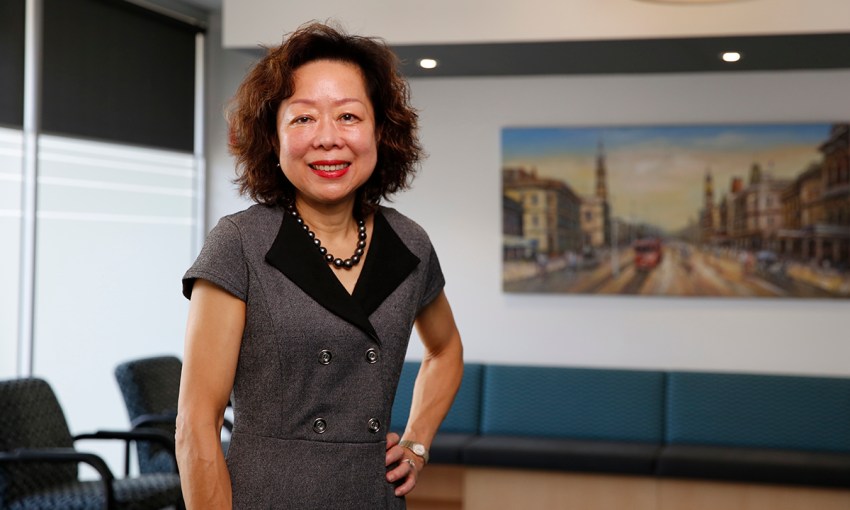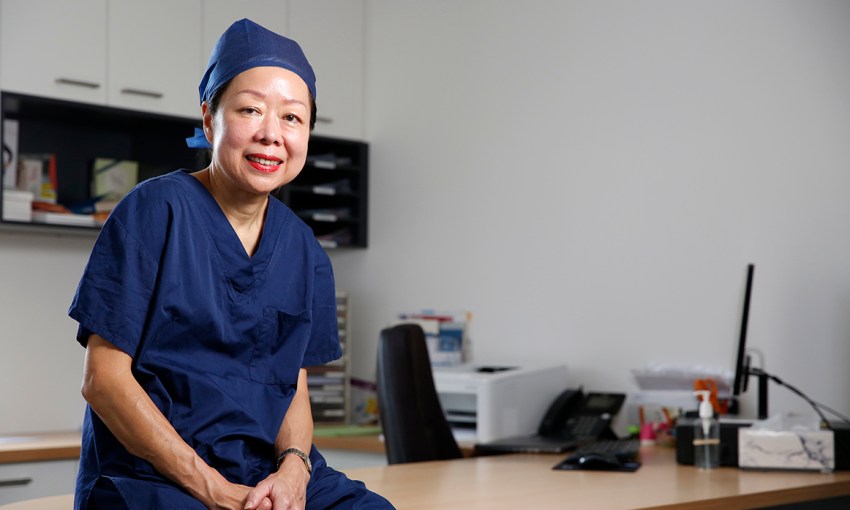Trailblazers in their male-dominated professions, these South Australian women have broken new ground for others to follow. Dr Lilian Kow tells us about the challenges she faced and how she overcame them.
Words of wisdom: Dr Lilian Kow
Dr Lilian Kow – Bariatric Surgeon
Can you give us a brief summary of your career?
After graduating medicine, I embarked on surgical training and research, completing the RACS Fellowship and PhD in 1996. My surgical career began as a hepatobiliary pancreatic and liver transplant surgeon at Flinders Medical Centre. My career changed when laparoscopic gastric bands were introduced to South Australia in 1996.
My colleagues and I became pioneers in gastric band surgery and thereafter in weight loss (bariatric) surgery in Australia. Subsequently, I assumed the roles of being the first woman President for obesity surgery societies – national (ANZMOSS), regional (Asia-Pacific Chapter) and global (IFSO). I am currently IFSO president. I have a busy workload combining this with being Clinical Director of GI Surgery at Flinders Medical Centre and Director of the Adelaide Bariatric Centre.
What were some of the challenges you faced early on in your medical career?
I learnt first and foremost to believe in oneself. There will always be challenges in one’s career, be it from other women, peers, male colleagues, friends and family. It’s about juggling a career combined with a demanding and competitive surgical training and balancing one’s social and family life.
Unfortunately, there are gender stereotypes around what are and are not appropriate career and life choices for women to make. One of the greatest challenges I faced was the lack of a female role model in Adelaide, where I did most of my surgical training.
When I was accepted into general surgical training, I was told that there had been no female trainee for the past 20 years in South Australia.
How did you overcome these challenges?
I was always passionate about a career in surgery. I believed in myself and my capabilities. Fortunately, my professional peers, mentors and family encouraged me to face up to the challenges. I was also fortunate to have spent my student elective in surgery at UCLA in Los Angeles. There I met a senior female surgical trainee whom I befriended and she was a role model for the early part of my surgical training.

What has been the most significant improvement for women in your profession during your career?
Many more women have been accepted into surgical training. Not only do we have women surgeons in almost every surgical subspecialty in South Australia and Australia, but we are getting recognised by our peers and our society.
What is still to be achieved for women in your profession?
Removing all of the barriers to women in surgery will require fundamental and long-lasting social changes in how people perceive the role of women within society, and increased understanding of the fact that a person’s career opportunities should not be limited by their gender, race, or sexual orientation. This will take time.
What is the one piece of advice you would give young women entering your profession today?
I would encourage all young women to realise that they are the future of their profession. They can have an active role in advocating for better policies on gender discrimination to be implemented at university as well as larger professional health care institutions.
In addition, they can support their institutions to develop explicit declarations or commitments against gender discrimination. In this way, we can make surgery a better profession; not just for women, but for everyone seeking to provide healthcare in an environment free from discrimination.
This article first appeared in the March 2022 issue of SALIFE magazine.



